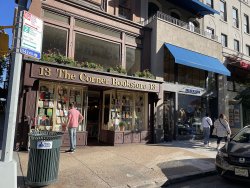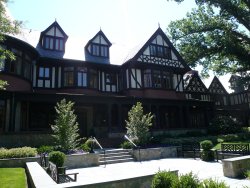White Whale Bookstore is a family-owned, general interest independent bookstore in Pittsburgh. Their selection of new books includes a broad range of contemporary and literary fiction and nonfiction, poetry, history, philosophy, local authors, independent presses, children’s books, and much more. The bookstore aims to be a community hub—a place for engagement, conversation, and sharing ideas. They host author readings, poetry nights, writing workshops, book clubs, children’s story hour, school visits, offsite literary series, and anything else that sounds like a good fit to the owners.














